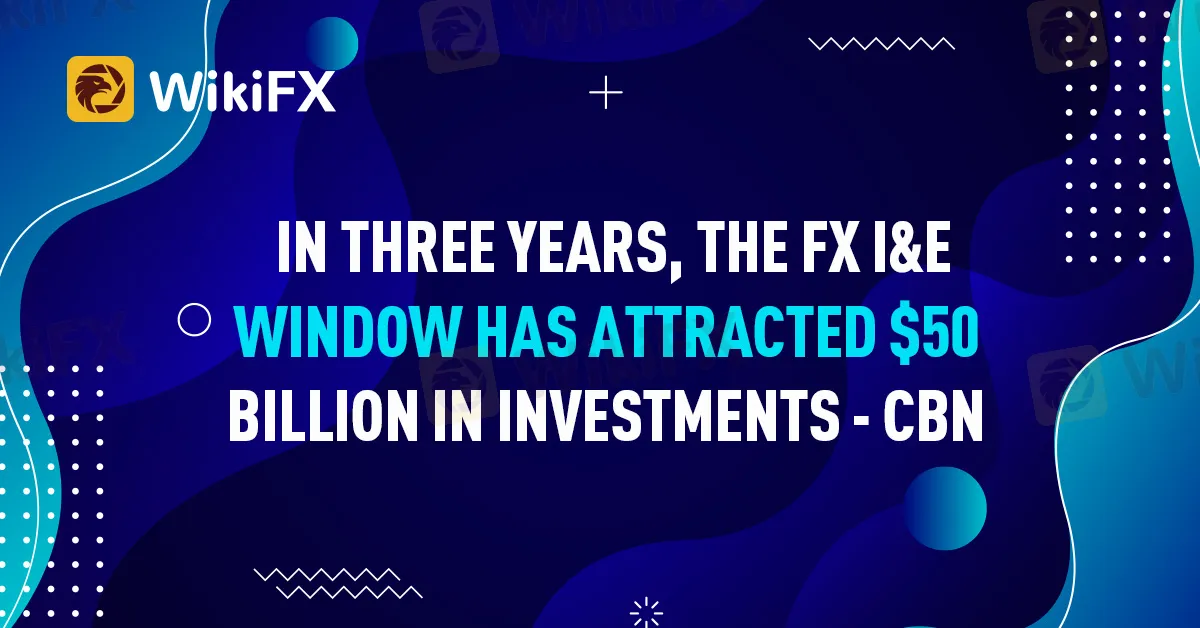Abstract:Mr Godwin Emefiele, Governor of the Central Bank of Nigeria (CBN), announced on Monday that the bank's Investors and Exporters (I&E) Forex window, which was established to allow investors and exporters to purchase and sell foreign exchange at market rates, has attracted over $50 billion in investments to the country in three years.

Mr Godwin Emefiele, Governor of the Central Bank of Nigeria (CBN), announced on Monday that the bank's Investors and Exporters (I&E) Forex window, which was established to allow investors and exporters to purchase and sell foreign exchange at market rates, has attracted over $50 billion in investments to the country in three years.
Emefiele made the remarks in Abuja at the start of the West African Institute for Financial and Economic Management's regional course on Exchange Rate Regimes and Policies (WAIFEM).
Emefiele explained that the objectives of the CBN's exchange rate policy in Nigeria were to preserve the value of the domestic currency, maintain a favorable external reserves position, and ensure external balance without jeopardizing the need for internal balance and the overall goal of macroeconomic stability, as represented by Mrs Omolara Duke, Deputy Director of the CBN's Monetary Policy Department.
He went on to say that for growing developing economies like Nigeria, where import demand remains high, a proper currency rate mechanism is necessary to protect capital outflows and ring-fence external reserves.
“The objective of the Central Bank of Nigeria's currency rate management is to allow the market system to decide exchange rate parity in an effective way free of the actions of speculators and rent-seekers,” he said.
He reminded that in March 2020, the CBN increased the official exchange rate by 15.0 percent from 305/US$ to 360/US$, with another adjustment in July 2020 to 380/US$ and 410/US$ in the first quarter of 2021. Imports of milk, dairy products, maize, and corn were prohibited in order to stimulate domestic production, which also coincided with the Bank's backward integration policy in the first and third quarters of 2020.
The CBN launched the “Naira 4 Dollar Scheme” on March 8, 2021, with the goal of increasing diaspora remittances into the nation. All beneficiaries of diaspora remittances sent through CBN-licensed IMTOs must pay N5 for every $1 in remittance inflow. The program has been a huge success.
“In July 2021, the CBN discontinued foreign exchange sales through Bureaux De Change (BDCs), and commercial banks took up the duty of selling foreign exchange to small end-users.” To prevent illegal demand and protect foreign reserves, Fx form A was filled out electronically online.
The introduction of the RT200 FX Programme, which stands for the Race to US$200 billion in FX Repatriation, is a set of policies, plans, and programs for non-oil exports that will enable Nigeria to achieve the lofty goal of US$200 billion in FX repatriation, exclusively from non-oil exports, over the next three to five years.
“At the last MPC, given the uncertainties facing the global economy, particularly rising inflation and the pace of monetary policy normalisation amongst advanced economies, and the challenges it will pose to developing countries such as Nigeria, such as reduced capital inflows,” the CBN Governor stated.
Dr Baba Musa, Director-General of WAIFEM, also spoke, saying that the focus on the currency rate is not surprising because exchange rates impact cross-border economic activities.
“International monetary policies have a significant impact on trade, investment, finance, tourism, migration, and many other areas, and as economies grow more globalized, more businesses, investors, and employees find their fortunes connected to the exchange rate and its impact on trade and financial flows.”
“Many developing-country governments have looked for solutions to the volatility that might exist in international currency markets.” Policymakers have also hastened to sell currency nostrums, demanding a return to dollarization, controlled floating, nominal anchoring, target bands, or other alternatives.
“There are theoretical and practical grounds to believe that globalization will increase the relevance of the exchange rate.” Theoretically, open-economy macroeconomic principles predict that capital mobility has a significant impact on exchange rate policy decisions. As a result, a financially linked economy's government must choose between monetary policy autonomy and a fixed exchange rate. If governments choose a fixed rate, capital mobility causes a monetary attitude that differs from the anchor currency. “Alternatively, if countries choose to maintain an autonomous monetary policy, their currencies must be allowed to float.” Because of these limits, the economics and politics of monetary and exchange rate policy are likely to be significantly different in an open economy than in a closed economy, he added.
According to him, the Course is meant to cover major themes such as Introduction to fundamental terminologies and ideas used in exchange rate analysis. Key ideas on the determination of exchange rates; The implications of real exchange rate equilibrium and misalignment for external adjustment and growth Further debates on OCA on the optimal exchange rate regime; The key exchange rate policy difficulties in developing and emerging market countries, as well as the macroeconomic policy tradeoffs of alternative exchange rate regimes. Others include the foreign currency market, financial globalisation, and the consequences of capital movements for exchange rate control. Monetary policy constraints and challenges in controlled exchange rate regimes ECOWAS nations' exchange rate trends and monetary integration; Lessons from other areas on economic integration and exchange rate regimes Recent Developments in Exchange Rate Policies and Foreign Exchange Rate Market Operations in Sierra Leone; Recent Developments in Exchange Rate Policies and Foreign Exchange Rate Market Operations in Nigeria and Ghana, respectively, and the Evolution of Foreign Exchange (FX) Intervention in Nigeria and Ghana: objectives, modalities, effectiveness, and methods to assess the adequacy of foreign exchange reserves and their management.














